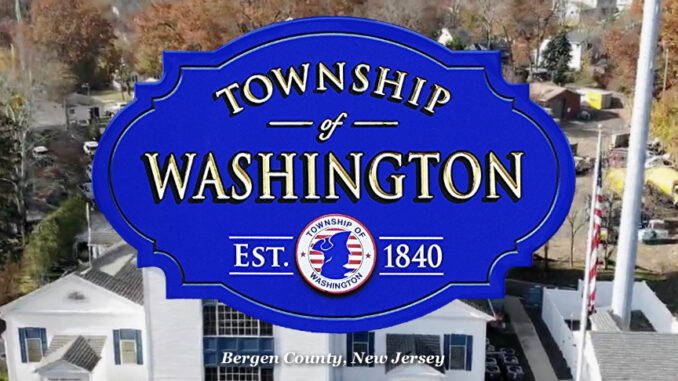
TOWNSHIP OF WASHINGTON—Nearly four years after the township’s DPW facility, at the municipal center complex, was demolished due to soil contamination, the Township Council has approved a $3 million bond to help fund a new facility at the site, now estimated to cost $5 million.
The bond ordinance required four votes to pass but initially fell short, with only three ayes. Councilmen Michael Ullman and Steven Cascio voted no, leaving the measure one vote shy of approval.
Fifteen minutes later, after further discussion, Cascio switched to yes following pledges from members Daisy Velez and Tom Sears to help him reduce the 2025 budget, though no specific cuts were promised. Ullman also changed his vote to yes, securing a final 4-1 approval.
The decision was met with applause from DPW employees, who have spent nearly four years working under a large tent at the old facility site.
The original building, home of the former Department of Municipal Facilities, or DMF before a 2020 name change, was demolished in 2021 due to contamination from leaking oil storage tanks dating back to the 1980s. Larger vehicles and seasonal equipment are stored in a parking lot at Our Lady of Good Counsel Church under a two-year, $64,000 lease approved in December 2023.
Initially, Cascio and Ullman opposed the $3 million bond ordinance, which was estimated to cost the average homeowner about $47 per year over a 30-year term. The total project cost remains estimated at $5 million, with approximately $2 million in prior bond ordinances and accounts helping to fund the facility, according to administrator Mark DiCarlo.
During deliberations, Ullman questioned DiCarlo about possible funding gaps from previous bond ordinances. Meanwhile, Cascio, who campaigned for re-election on a pledge to cut taxes, raised concerns about exposing taxpayers to significant future remediation costs at the swim club, which was recently found to be contaminated with toxics, including PCBs.
Cascio noted that the council had received word from Boswell Engineering on Feb. 18 that they were unlikely to have an estimate for PCB remediation at the swim club until perhaps 2027. DiCarlo confirmed he had requested the email to clarify the delay. Some council members had indicated they were waiting for cost estimates before voting on DPW funding.
As discussions continued, Sears urged the council to take action and finally provide DPW employees with a proper facility. DiCarlo stated that previously applied-for grants could reimburse the township for most potential remediation costs at the swim club, but Cascio questioned whether both grants would be approved and raised concerns about remediation costs for two township properties.
Cascio pointed to “two properties with unknown variables” related to remediation. The first, 450 Pascack Road, was previously approved for environmental testing for lead, asbestos, and historically applied pesticides.
A second follow-up investigation was ordered, but officials have not disclosed details. A purchase agreement for 450 Pascack was signed in May 2024 for $750,000.
Negotiations and the Final Vote
Before changing his vote, Cascio initially requested that the 2025 budget be reduced by $47 per household to offset the bond’s tax impact, but that did not occur. Mayor Peter Calamari, who briefly spoke on the budget that evening, estimated that the 2025 budget would increase the average homeowner’s taxes by $85, plus an additional $18 for the library.
He argued the budget had “no fat” and could not be reduced.
Pascack Press requested a copy of the preliminary 2025 budget but was told by DiCarlo that it remained “a working document” and was not yet available.
DiCarlo also noted that the nearly $3 million bond issue would not affect taxpayers until 2027 or 2028 and reiterated that future swim club remediation costs could largely be covered by grants.
Cascio said he would vote for the bond if councilors agreed to cut out a “significant amount” of the 2025 budget. Velez said she would make no promises on budget cuts but said she would “do her absolute best to help cut the budget as best possible” if Cascio changed his vote.
Both she and Sears promised to work with Cascio to reduce the 2025 budget, with Cascio saying he would focus on “needs, not wants.”
Cascio said he would “DOGE” the budget, referring to Elon Musk’s Department of Government Efficiency, or DOGE, which has facilitated firing thousands of federal employees and dismantling long-serving federal agencies.
Cascio asked for a “zero net gain” on the budget from Velez, who said she would do her best. Sears also said he would make that effort, too.
Near the end of a nearly 50-minute discussion on the bond, Cascio changed his vote, and Ordinance 25-04 was approved,
4-1. The ordinance appropriates $3 million and authorizes issuing $2.85 million in bonds or notes for a new DPW facility.
The project’s cost estimates were made before former President Donald J. Trump’s steel and aluminum tariffs—ranging from 10% to 25% on imported materials from China, Canada, and Mexico—were imposed, potentially impacting final costs.
